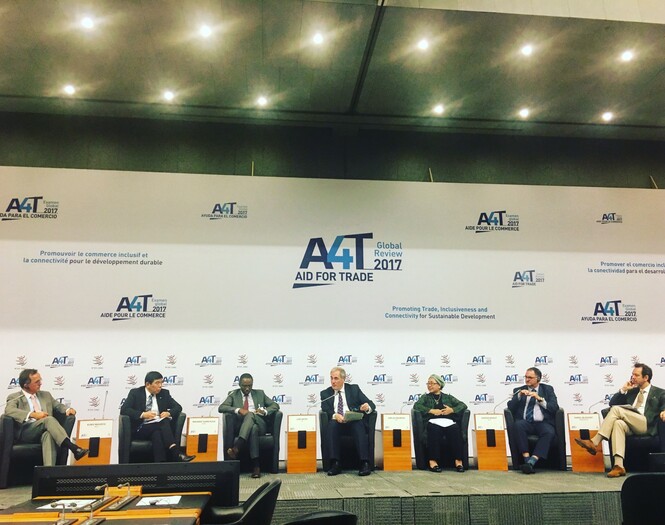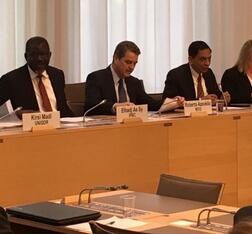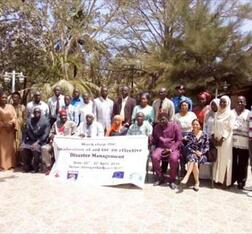
In the months that follow, access to food and healthcare continues to be an issue. Where does this leave you and your family? How are you able to rebuild your lives?
The facilitation of aid was the subject of a high-level meeting in Geneva this week, where leaders from across the economic, trade, development and humanitarian sectors gathered together with government representatives at the 2017 ‘Aid for Trade’ event, hosted by the World Trade Organization.
Representing IFRC on a high-level panel discussion was the Under-Secretary General for Partnerships, Dr. Jemilah Mahmood. Highlighting the work undertaken by IFRC to promote the facilitation of cross-border assistance in emergencies, Dr. Mahmood outlined how the same legal barriers affecting disaster relief operations can also affect regular trade processes. This, in turn, can have long-lasting impacts on the livelihoods and resilience of communities.
Dr. Mahmood emphasized the cruciality with which these issues must be discussed, and the cooperation required among partners from multiple sectors.
The need to have the right laws and procedures in place to facilitate aid and trade processes– before a disaster strikes – was reiterated by several leaders at the event, including the Director General of the World Customs Organization, Mr. Kunio Mikuriya, and the Director General of the World Trade Organization, Mr. Roberto Azevedo.
Partners from the private and aviation sectors were also present, with the Head of Cargo Border Management from the International Air Transport Association, Mr. Gordon Wright, emphasizing the need to ensure effective implementation of the relevant rules and procedures.
In addition to focusing on facilitation challenges, a reoccurring theme throughout the event was women’s empowerment. Dr. Mahmood took the opportunity to explain that ensuring gender equality and promoting the role of women is a significant step towards inclusiveness and sustainable development. She also highlighted an ongoing project undertaken by IFRC, which seeks to identify the role that law and policy can play in promoting gender equality in disasters, and protection from sexual and gender-based violence.
Noting the human and economic costs of disasters, and the impacts they have on the trade and commercial sectors, Dr. Mahmood concluded her remarks by highlighting the need to establish trust and maintain a dialogue among national authorities and the relevant international actors. It is through this continued dialogue and cooperation that we can work together to overcome barriers to the effective facilitation and regulation of aid and trade.


